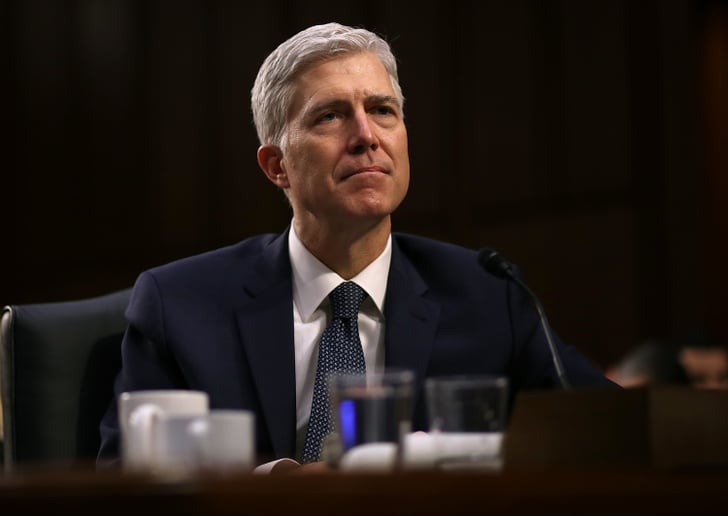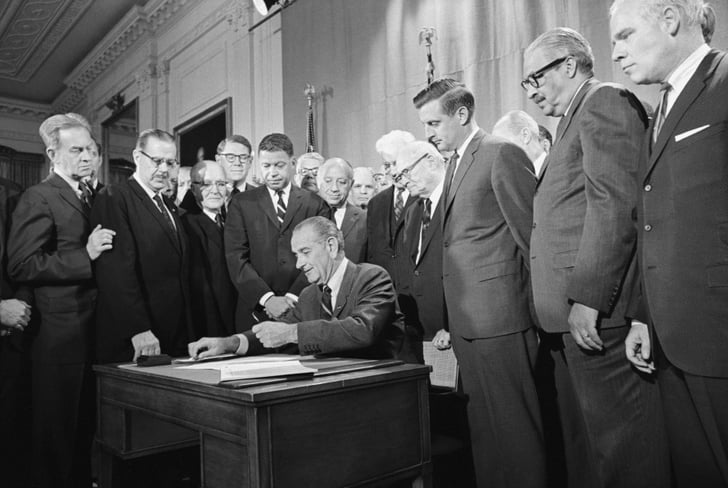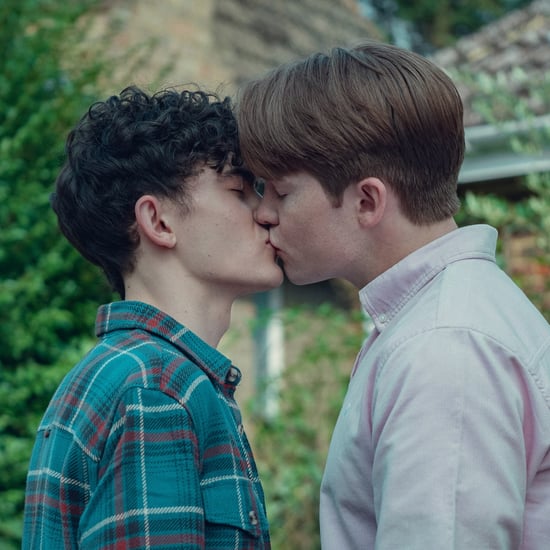How the Supreme Court Might Rule in LGBTQ+ Rights Cases
How Will Each Supreme Court Justice Vote in These Historic LGBTQ+ Rights Cases?

On Tuesday, Oct. 8, the Supreme Court heard — but didn't yet decide — three cases that could have historic implications for LGBTQ+ identifying folks and workplace discrimination. Bostock v. Clayton County, Georgia, Altitude Express v. Zarda, and R.G. and G.R. Harris Funeral Homes v. EEOC challenge whether an employee who believes they were unfairly treated or fired because of their identity as LGBTQ+ are protected under the Title XII clause of the 1964 Civil Rights Act, which outlaws workplace discrimination based on sex. If the Supreme Court decides they aren't, LGBTQ+ folks would lose their only legal protection against identity-based employment discrimination and could be fired — legally — for innate parts of their identity. (Currently, the only legislation regarding LGBTQ+ employment rights is stalled in the Senate.)
In the Bostock and Zarda cases, Donald Zarda, a skydiving instructor, and Gerald Bostock who worked as a child welfare service coordinator, both claim they were fired because of their sexuality. Bostock claims joining a gay recreational softball league led to his firing; county officials claim it was because he mismanaged funds. Skydive instructor Donald Zarda, who passed away in 2014 in a base-jumping accident, told a customer in a 2010 skydiving lesson that she shouldn't worry about being so close together because he was gay. Afterward, the customer's boyfriend complained the experience was uncomfortable for her and that Zarda had inappropriately touched her during the lesson and used his sexual orientation as an excuse. Shortly after, Zarda was fired for his behaviour, but Zarda denies he ever touched the customer inappropriately and claims his firing was because of the customer's, and employer's, homophobic views.
In the case of R.G. and G.R. Harris Funeral Homes, Aimee Stevens — a transgender woman — was fired in 2013 from the funeral home after presenting her employer with a letter coming out as trans and explaining why her decision to embrace her identity as a woman was necessary. Two weeks after presenting the letter and coming to work dressed in femme clothing, Stephens was fired for breaking the dress code, or, as Harris Funeral Homes argued: "he wanted to dress like a woman." Stephens and her lawyers instead point to the funeral home's sexist policies of forcing Aimee Stephens to adhere to an stereotype of how someone assigned male at birth should dress, as the reason she was fired.
Zarda and Bostock's cases were argued together, but separate, from Aimee Stephens' case. Each of these cases have gained national attention by LGBTQ+ activists and their opponents. The Trump administration even filed a amicus brief urging the court not to include discrimination based on sexuality and gender expression under Title XII's definition of sex-based discrimination. Stefan Vogler, a postdoctoral fellow at Northwestern University's Centre for Legal Studies, spoke to POPSUGAR about the cases and offered some background that could help us anticipate what the future looks like for LGBTQ+ rights. While The Supreme Court is not expected to release its decisions on these cases until June of 2020, we took a look at how each of the current justices analysed these cases in oral arguments, what their previous rulings and decisions could tell us about their opinions on these cases, and how you can make your voice heard before they rule.
Neil Gorsuch

How You Can Make Your Voice Heard








